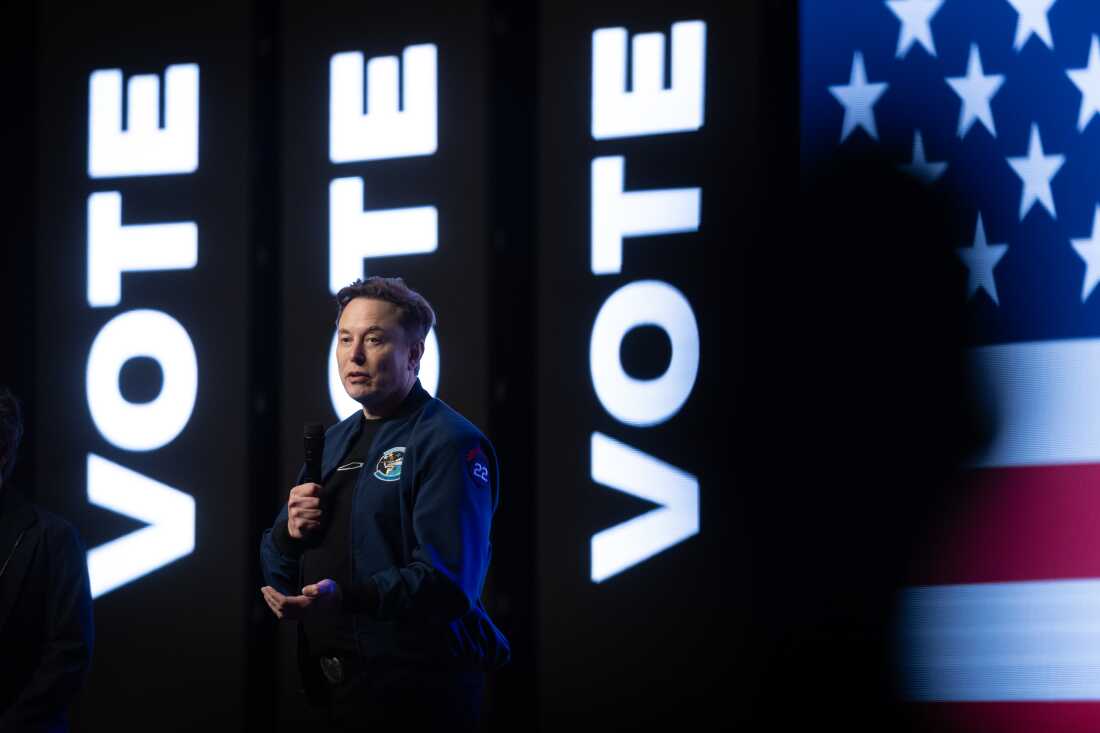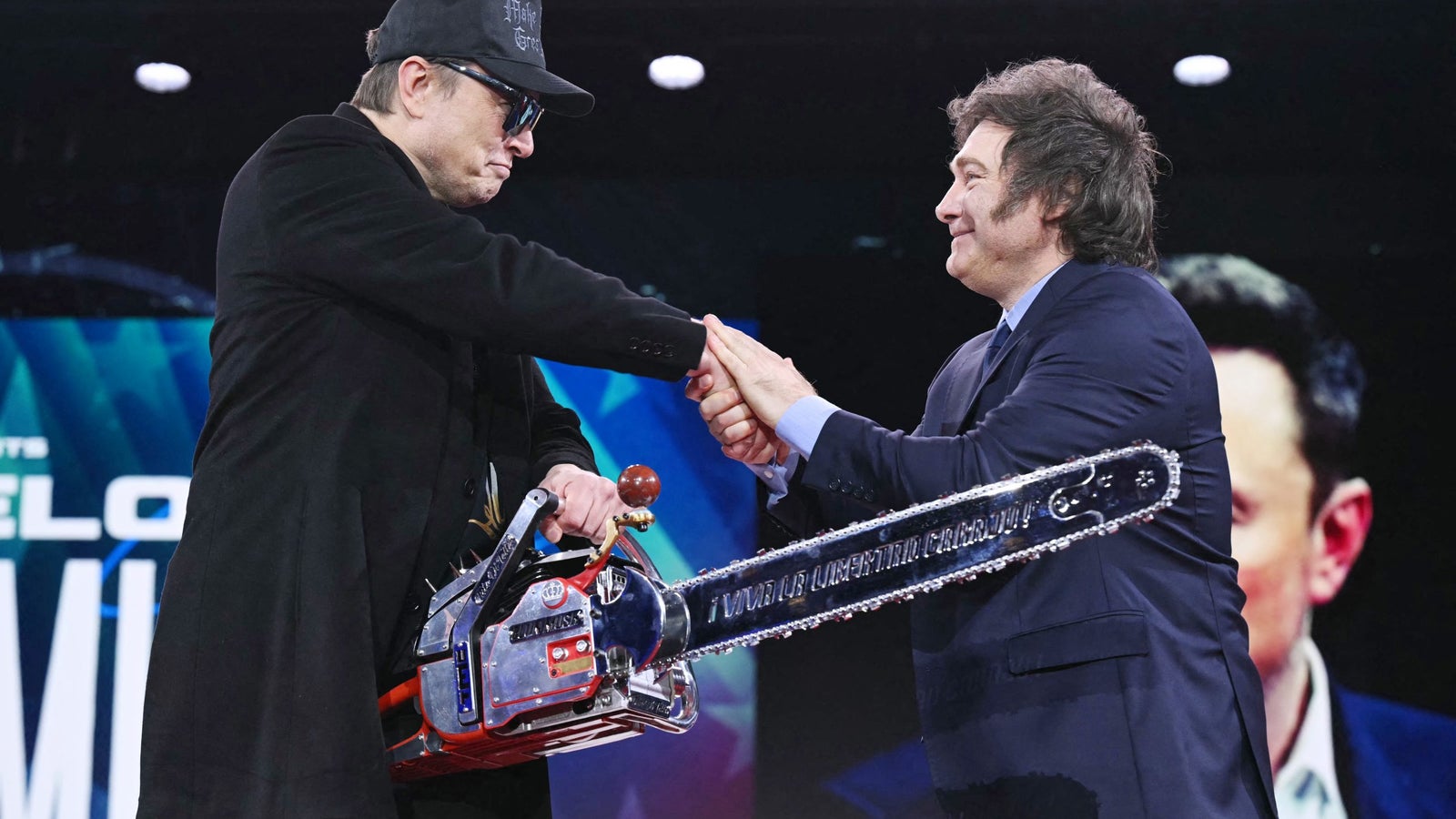
A hot seat for Musk, the trade war and third-term talk: Takeaways from the week
April 4, 2025
Former Costa Rican president says visa may have been revoked over criticism of Trump
April 4, 2025In January, Argentina slashed import tariffs on electric vehicles, opening the floodgates for China’s BYDBYDBYD Auto is a Chinese carmaker that became the world’s leading EV manufacturer in 2023, competing with Tesla for market share and global attention.READ MORE, Tesla, and other brands in a country that had for decades been synonymous with high import tariffs. But while consumers and foreign brands are set to benefit, local manufacturers won’t.
Backed by Argentina’s libertarian president, Javier Milei, the new regulation allows up to 50,000 electric and hybrid vehicles to be imported into the country per year. The policy, aimed at lowering EV prices, will likely benefit cheaper Chinese brands that are rapidly making inroads elsewhere in the region, while hurting the country’s homegrown EV, Tito.
“The electric car industry needs an incentive, and with a completely open market like the one being proposed now, the Argentine-made car industry will disappear, leaving only imports,” Juan Manuel Baretto, chief executive of Coradir, the company that makes Tito, told Rest of World.
Until now, Argentina had largely resisted the EV wave sweeping across Latin America. While hybrid sales saw modest growth last year, fully electric vehicles are a rare sight because of hefty customs duties and regulations. Argentines, weary after a months-long recession, have also been buffeted by skyrocketing fuel prices and rising vehicle costs since Milei took office in December 2023.
The new measure will allow more affordable EVs into the country, potentially luring more customers.
“This year should finally be the one when electric vehicles take off in Argentina,” Carlos Cristófalo, a director at specialized auto outlet Motor1 Argentina, told Rest of World. “We’ve finally secured a clear regulatory framework, and most of the cars that will benefit from this quota will be imported from China.”
China’s largest automaker, BYD, is set to gain, as it is rapidly expanding across the region. Last year, BYD sold 77,000 vehicles in Brazil, of which more than half were fully electric. It began building a new factory in Brazil, the biggest market for EVs in the region. In Mexico, BYD sold roughly 40,000 units in 2024 — mostly hybrid and electric models — and plans to double that figure in 2025.
“Today, it’s almost exclusively Chinese automakers driving the electrification of [emerging] markets,” Felipe Munoz, an automotive expert at Jato Dynamics, told Rest of World. BYD also has its sights set on Argentina: In late January, it sent a delegation to the country, with stops in Buenos Aires and the lithium-rich northern region, signaling its intent to establish a strong presence.
“Now imagine what will happen once they start producing them there. It’s going to be huge,” said Munoz.
Saul Loeb/AFP/Getty Images
BYD did not respond to a request for comment from Rest of World on its Argentina strategy.
The entry of BYD and other Chinese brands could spell trouble for Argentine EV makers like Volt Motors, the country’s first EV producer; and Coradir, which makes the Tito car and Tita, a small electric van. With a maximum speed of 65 kilometers (40 miles) per hour and limited production capacity, Tito may struggle to compete with the influx of more sophisticated, competitively priced imports, Cristófalo said.
The locally assembled, no-frills city car Tito, which costs roughly $15,000, sold about 100 units last year. Together with Renault’s electric Kwid model, Coradir accounted for nearly 70% of Argentina’s EV sales in 2024, according to data from research firm Siomaa.
Coradir started as a lithium battery supplier and later ventured into vehicle manufacturing. Tito saw a boom in orders during the pandemic, with its vehicles selling out shortly after its launch in 2022. Sales dipped slightly in 2024, partly due to the still-developing EV infrastructure, and what Baretto said is a lack of government incentives. Still, Tito marked a pivotal shift in Argentina’s EV market, and has been the most widely sold EV in the country.
Milei’s new policies are expected to shift the landscape in Argentina’s EV market. The new import regulation applies to EVs that cost under $16,000 at the port of origin before additional taxes and fees apply. The brands that meet these conditions are mostly Chinese.
“With a fully open foreign trade scheme like the one Milei is proposing now, the [Argentine-made] EV market will disappear,” Baretto said.
Milei’s policy is in contrast to regulation in Latin America’s fastest growing EV market, Brazil. After initially exempting EVs and hybrids from a 35% import tax on vehicles to boost the sector, Brazil implemented a progressive import tariff on EVs, starting at 10% in January 2024 to eventually reach 35% by July 2026. The goal is to protect the local auto industry.
Tito is one of a handful of homegrown EVs in the region. In 2019, a Bolivian company launched Quantum, a mini EV that is available in a few countries across South America. Brazil and Mexico are developing their own EVs.
While Tito faces an uncertain future in its home market, not all EV enthusiasts are sold on Chinese brands. Wealthy Argentines are looking forward to the arrival of Tesla, which has yet to crack the market in Latin America. Its plans to build a gigafactory in Mexico have been delayed. In South America, it has only opened one official store in Santiago, Chile. This has forced private car dealerships that import the EVs in the region to navigate laborious paperwork.
Tesla’s cheapest model starts at around $30,000 in the U.S., which means it is unlikely to benefit from Milei’s recent policy change. Still, some have preordered vehicles from Argentesla, a private importer.
While the recent regulations “change everything … we don’t expect Tesla to enter Argentina in the short term,” Argentesla’s founder, Tomás Zoani, told Rest of World. The company plans to begin the import process as soon as the new homologation rules come into effect, he said.
Even loyal fans of Tito are considering a change. Cintia Gargiulo, a sales agent in the Buenos Aires province, was among the first to buy a Tito in 2022, she told Rest of World.
“The car does the job of getting you from point A to point B, and the cost-benefit ratio is positive, but there’s still room for improvement in Argentine manufacturing,” she said.
“If foreign models with better features and, above all, competitive prices enter the market, I’d be willing to consider the switch.”
#Argentina #lifts #tariffs #EVs #pitting #local #favorites #cheap #Chinese #imports
Thanks to the Team @ Rest of World – Source link & Great Job David Feliba






